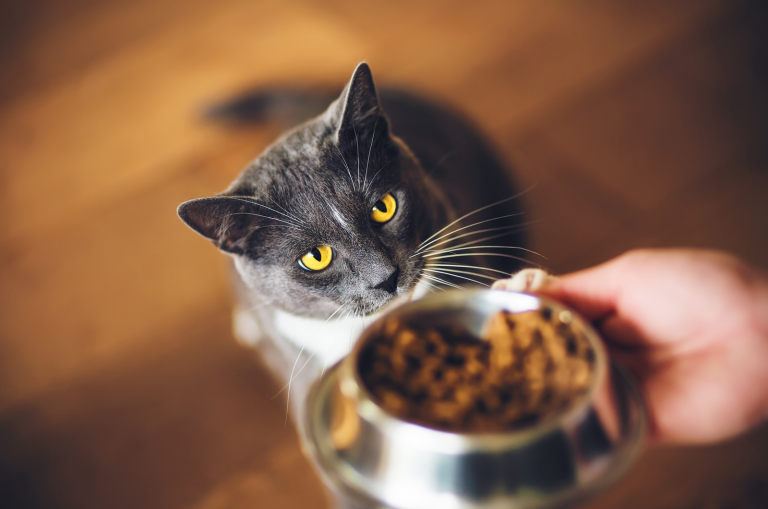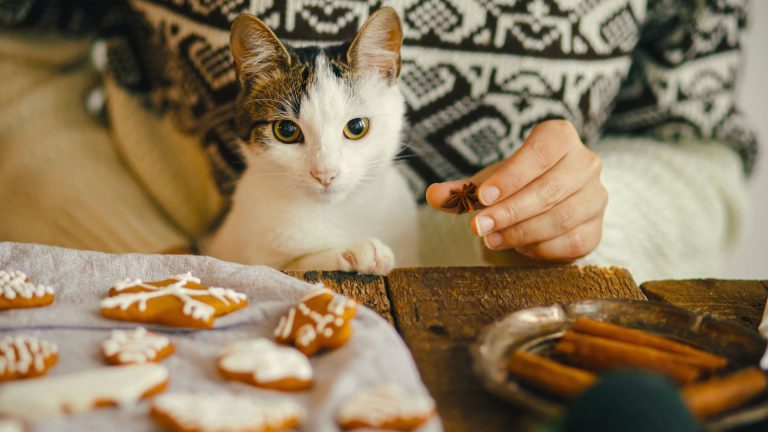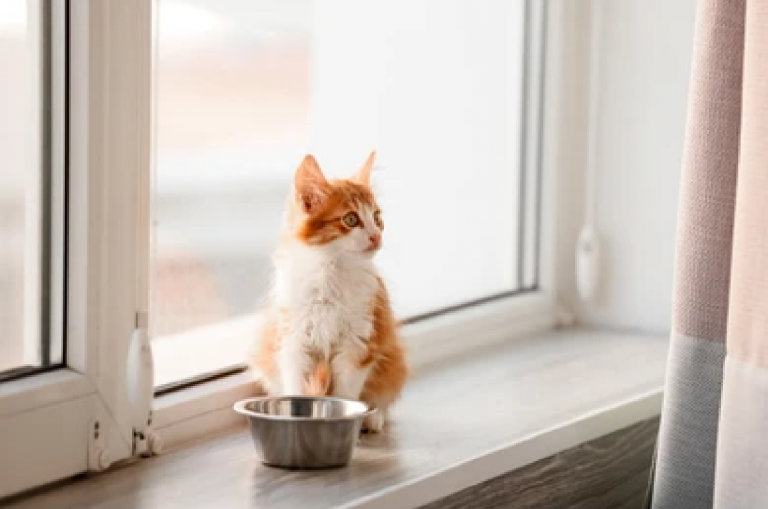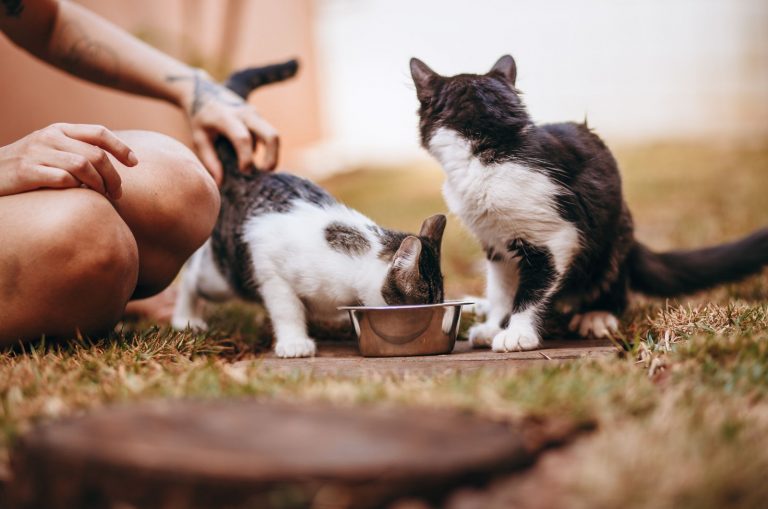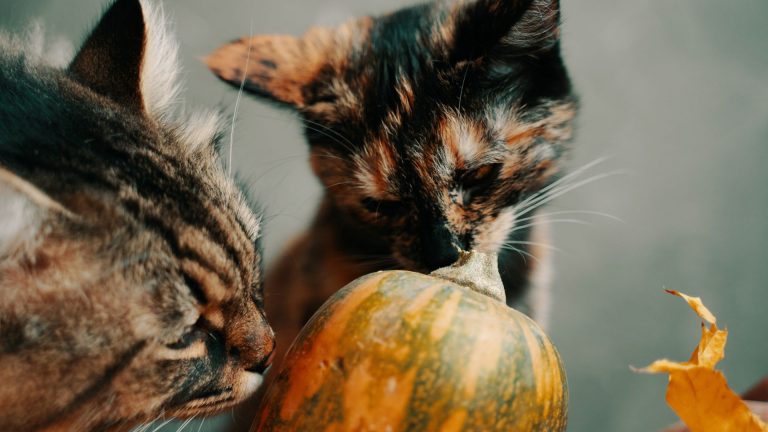Why Is My Cat Throwing Up Undigested Food? Best Explanation
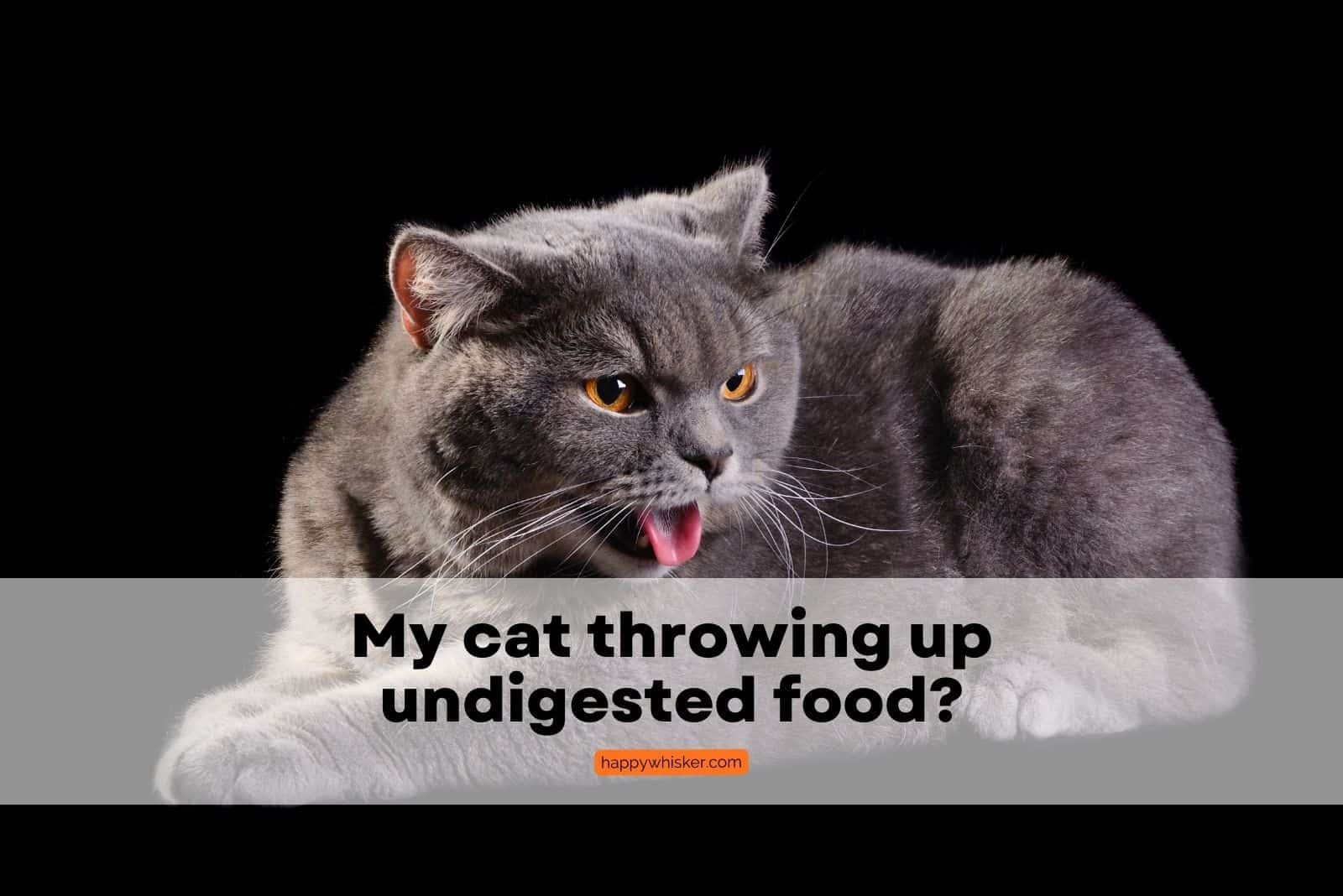
Our pet’s health is the most important thing in the world. When something unusual and bad happens, it’s normal that you worry. If you have noticed your cat vomiting their food, it is normal that you’re worried.
Every cat owner would ask the same question; why is my cat throwing up undigested food?
We encounter problems with wet food more commonly, but your cat could be vomiting any type of food, which is always concerning. It’s good you’re reading about it, as it’s always best to be prepared.
Read on and learn all about the reasons and how to help if your cat’s been throwing up undigested food. It’s always helpful to come prepared to your vet’s office and to be aware of all the things that happened to your feline friend prior to the appointment.
Why Is My Cat Throwing Up Undigested Food?
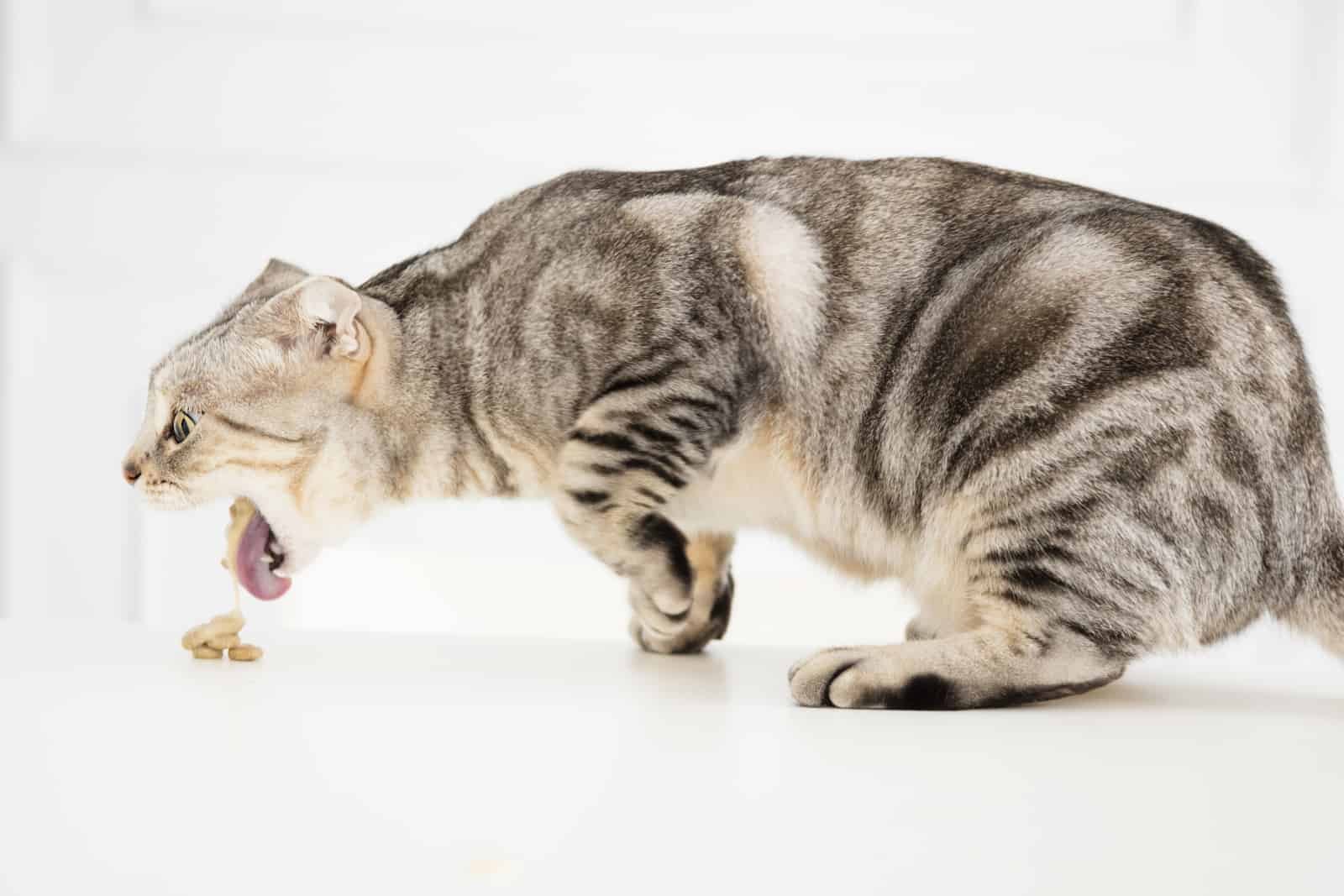
Cats vomiting undigested food may indicate major health concerns like allergies, cancer, malnutrition, and so on. As a result, you should pay close attention to your cat at this time and seek your vet’s assistance as soon as possible.
Before we go into the details of vomit triggers, it’s vital to differentiate between vomiting and regurgitation, because it will help the vet diagnose the reason.
What Is Regurgitation?
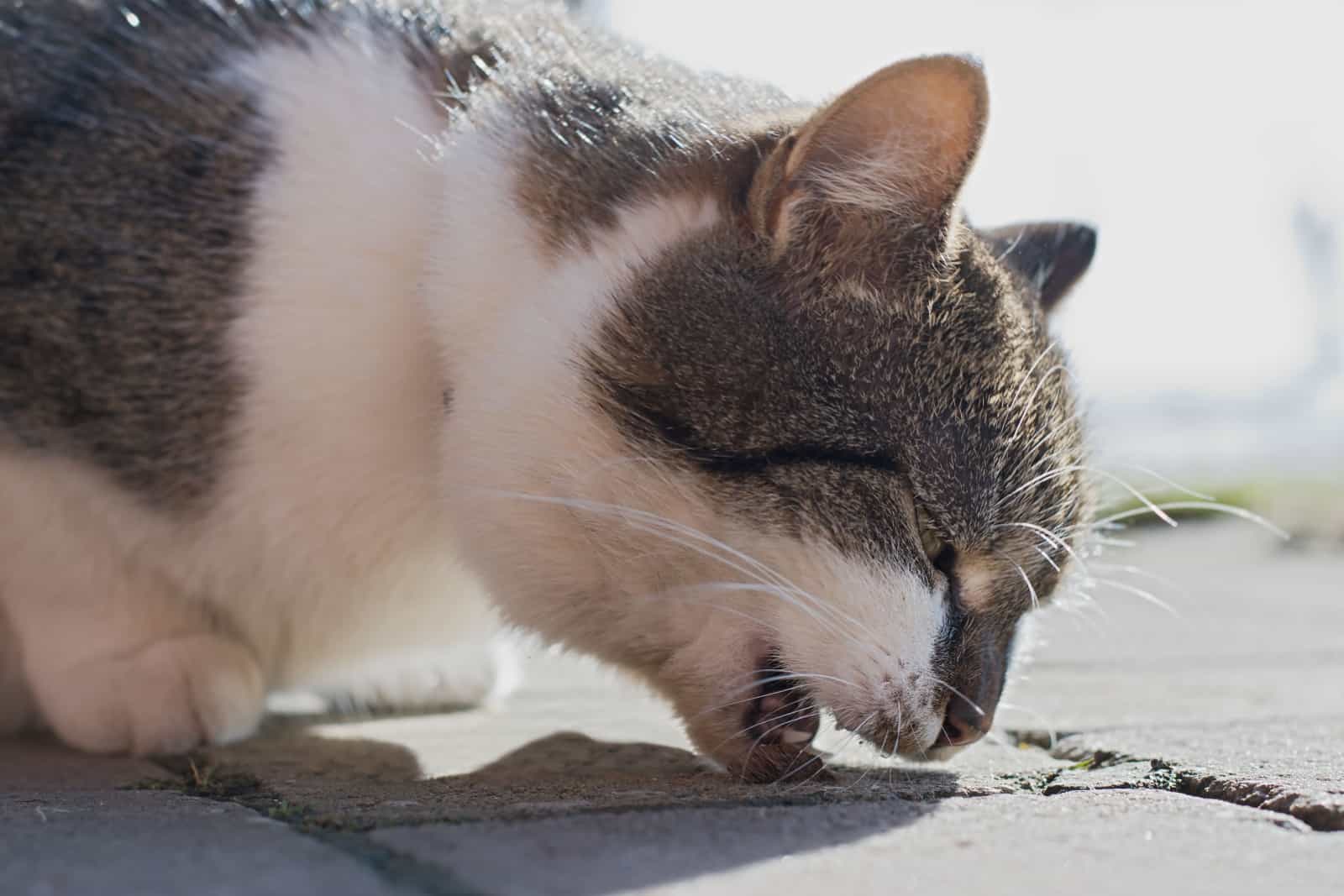
Knowing the difference between regurgitation and vomiting may be extremely useful. If you know what your cat is doing, your vet will also have a greater chance of determining what is causing this to happen.
There is a significant distinction between vomiting and regurgitation. A chunk of regurgitated food, unlike the food your cat vomits, has not yet been digested by the cat’s stomach acids.
This is the main difference between the two, and knowing this distinction may be critical in determining the cause. Regurgitation is distinct in that, when it occurs, it only involves the animal’s esophagus or mouth.
With regurgitation, water, food, or other ingested things do not travel all the way to the cat’s stomach before passing back through its mouth. This is different since there is no abdominal effort associated whatsoever with regurgitation.
It’s more passive; your cat may simply lower their head, and food will fall out. When gathering information for your vet, keep the timetable in mind. Consider how long it has been since you last fed your pet.
Cats usually regurgitate their undigested food within thirty minutes to two hours of eating.
What Is Vomiting?
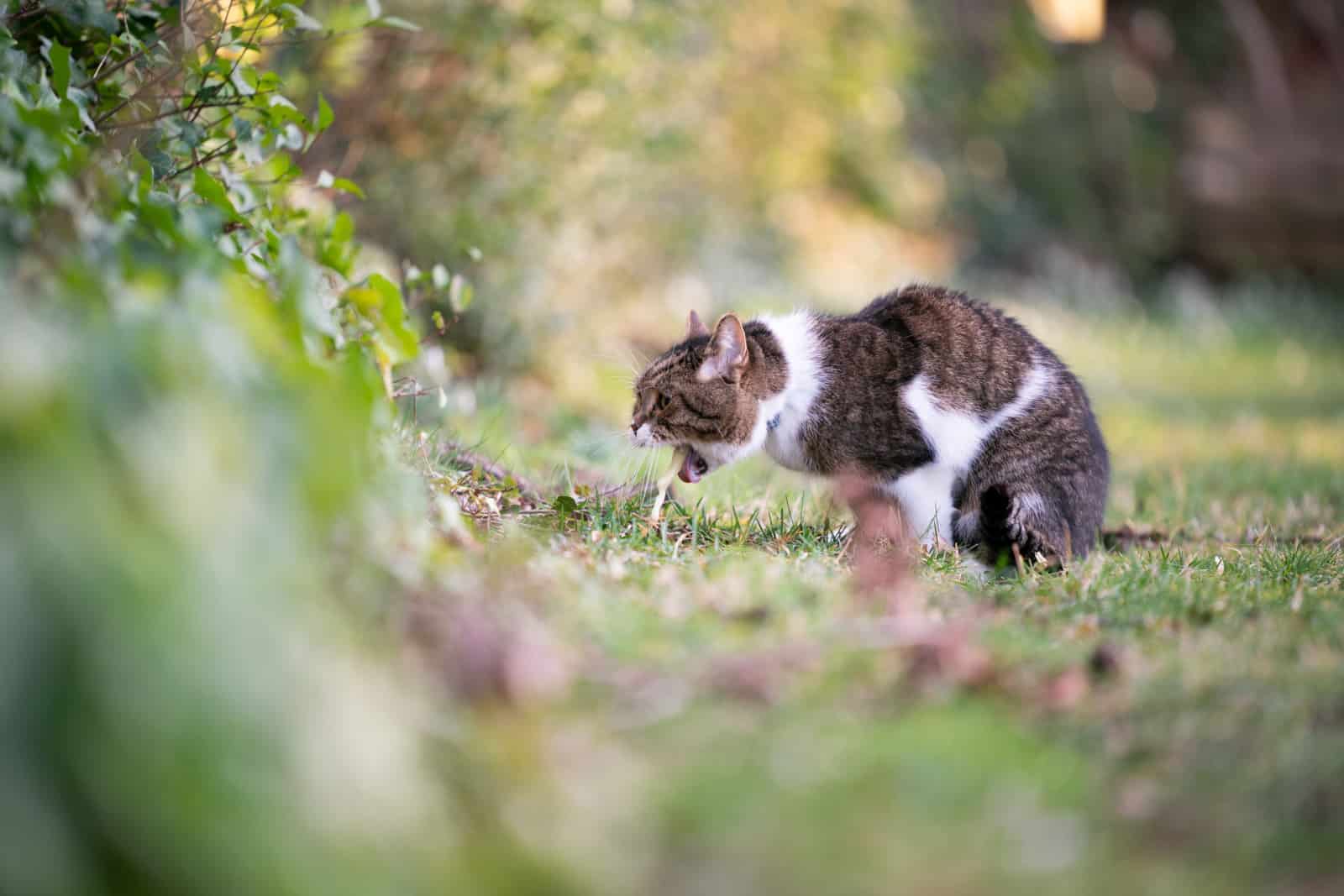
Vomiting, on the other hand, happens when your cat’s stomach contents are evacuated. This includes not just any meal they’ve ingested but also water and bile. When your pet vomits, it is frequently accompanied by a number of other symptoms.
This involves stomach muscular contractions such as coughing, nausea, and retching. When your cat is vomiting, it will usually start retching before vomiting, and it may also drool or vocalize.
Take thorough notes of the symptoms that follow this event; these will assist your vet to determine how to treat the animal correctly.
Two Types Of Vomit
In general, vomiting may be classified into two types: acute and chronic. When a cat vomits on a regular basis, it is chronic, which indicates that there is a certain time period in each month or week when the cat will ultimately vomit once or twice.
On the contrary, acute vomiting occurs in many cats that did not previously throw up but have just begun to do so. If your cat vomits more times during a short period of time, you should talk to your vet.
It is completely normal and not a cause for concern if your cat throws up less than three times a day. If it surpasses this figure, you should see the veterinarian as soon as you can.
If your cat begins to vomit excessively, look for the following symptoms:
• Your cat eats continuously, but the food isn’t digested entirely.
• Your cat is constantly fatigued and lacks the strength to wander around your home.
Observe your cat in your home for a day to see if this condition will pass. If its health worsens significantly throughout the night, take it to your vet as soon as possible.
Any delay in receiving treatment can cause great harm to your beloved pet since it may be suffering from a severe ailment, most often liver disease. Simply keep an eye on your pet every day to discover any unusual signs as soon as they appear.
Never hesitate to call a vet! Whenever you’re concerned about something, no matter how insignificant it seems, consult the vet.
You might also be interested in: My Cat Keeps Throwing Up But Seems Fine – Should I Worry?
Reasons Why Cats Vomit
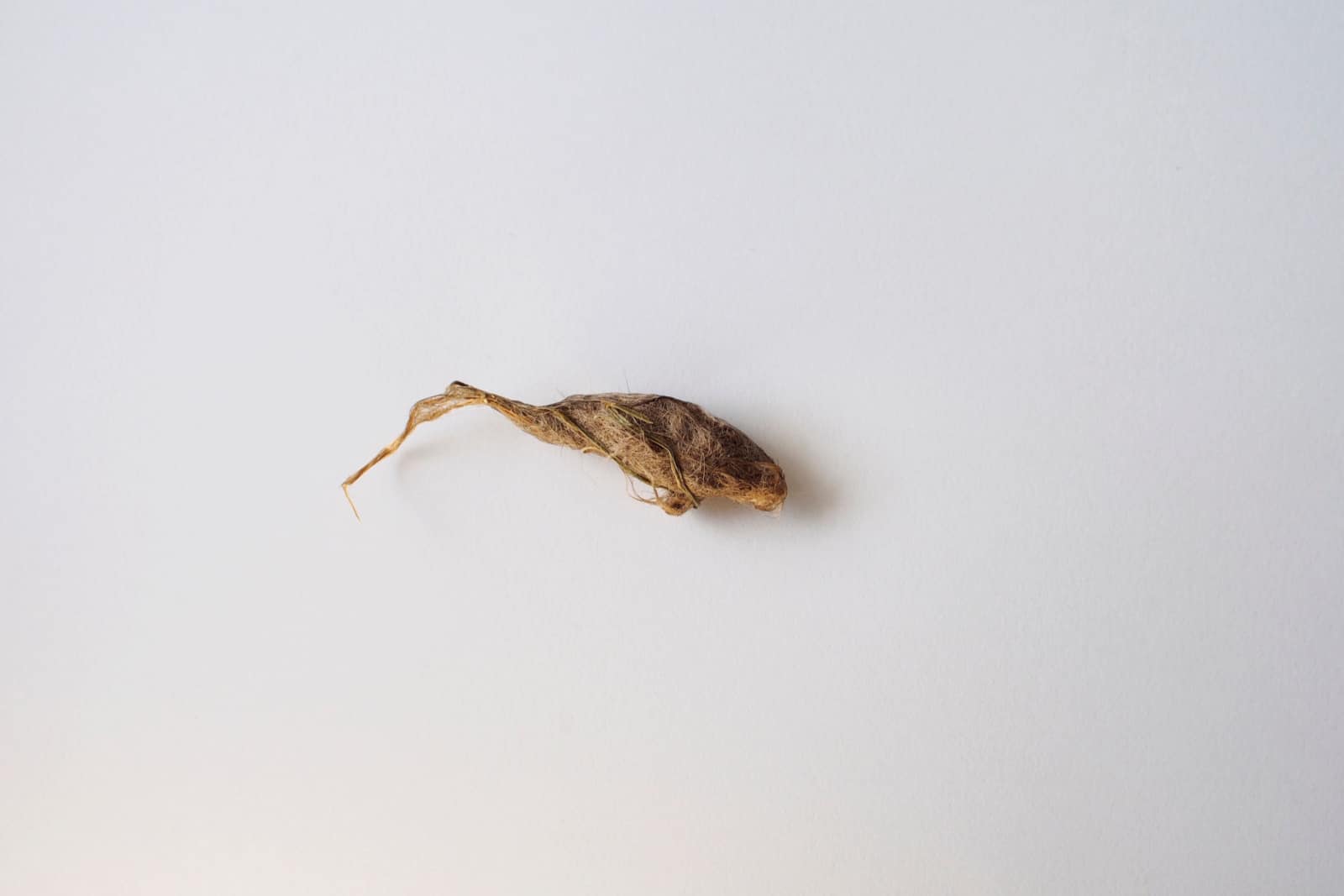
The following reasons are most commonly associated with cats that vomit undigested food. Perhaps you’ll notice some signs that are specific to your cat.
1. Hairballs
Throwing up undigested dry food in your cat might be an issue, but it is even more worrying if your cat has hairballs. Cats, as we all know, are impeccably clean and love grooming themselves for most of the day.
The small “hooks” on your cat’s tongue may mistakenly transfer excess hair from their body into their mouth when self-grooming. If the hair is exhaled, it won’t be such a huge concern.
It is something you should be concerned about if the hairballs form within your cat’s stomach. Because hair is not edible, your cat may suffer and exhibit symptoms such as nausea.
The final remedy to this problem is to give your cat some nutritional supplements. Furthermore, it is recommended that you brush your cat’s fur on a regular basis to eliminate any dead hair that the cat may consume during grooming.
2. Your Cat Is Eating Too Much Or Eating Too Fast
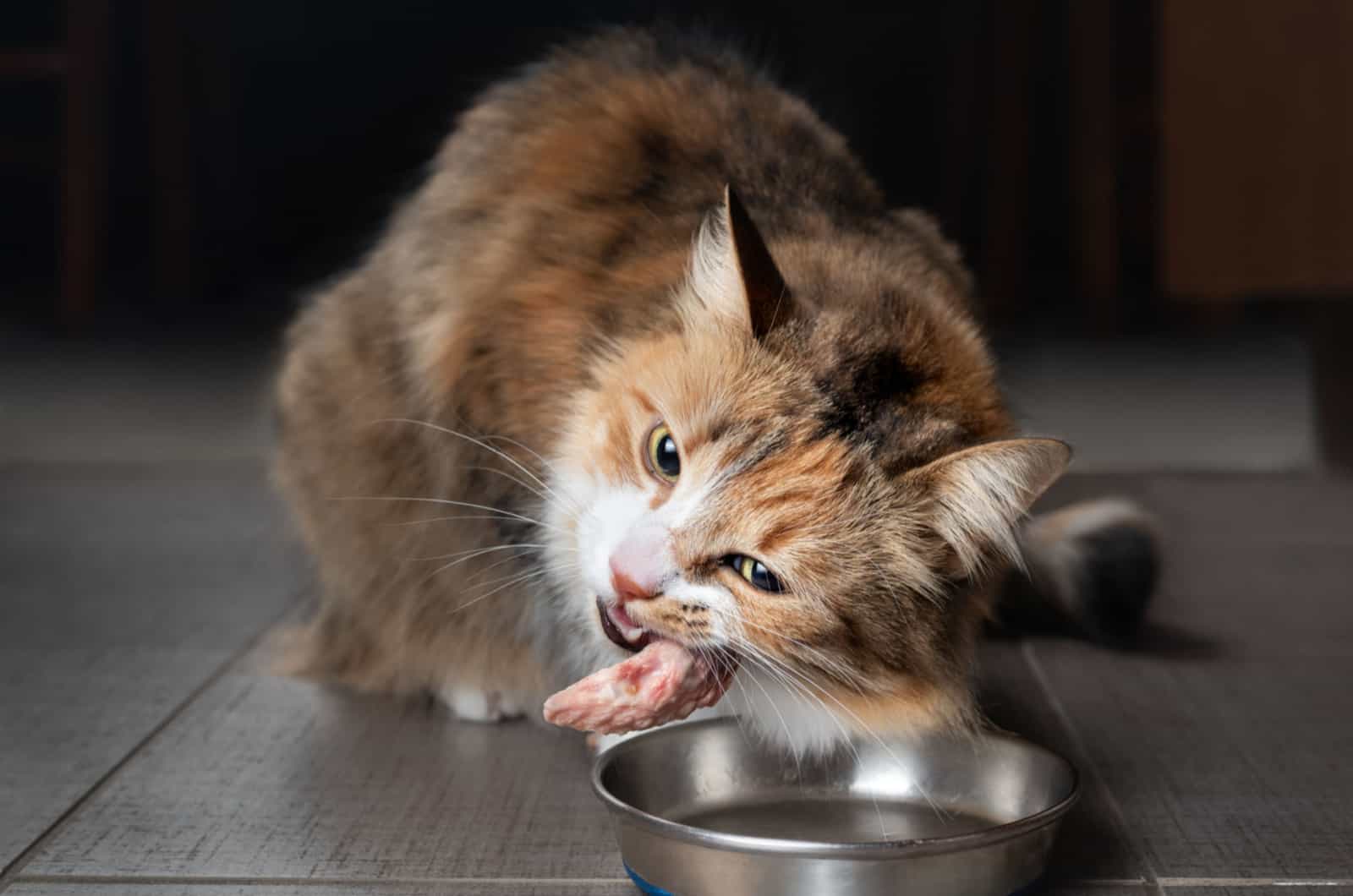
One of the most common reasons why your cat’s stomach does not digest food correctly is that the meal is consumed so rapidly that the stomach does not have enough time to absorb everything properly.
Once your cat has become accustomed to this behavior, there is a good probability that he or she may vomit up more undigested food than you thought could happen.
As a result, you should discuss with your veterinarian the best training strategy to avoid this behavior from recurring. It may be difficult at first for both you and your cat. Nevertheless, your cat will progressively consume less and improve.
There are various methods you can attempt, but the simplest is to feed your cat gently. You may either feed your cat by hand if you have lots of time, or you can get an automatic feeder that will challenge your cat to receive food.
These feeders can take the shape of a puzzle and challenge your cat to exert considerable effort to obtain the food. Alternatively, and more cost-effectively, the cat food might be placed on a big plate rather than a bowl.
This will make eating more difficult for your cat since the food will move about the plate more. It is strongly advised that you consult with your veterinarian and request advice on the proper feeding practices.
3. Food Allergies
As previously indicated, some cats may consume too quickly or have a food allergy. If your cat is prone to vomiting, or if they have digestive allergies, they may vomit up partly digested or undigested food.
If your veterinarian has checked out any other medical concerns and believes that what your cat is vomiting is food, they may recommend that you try sensitive cat food diets.
If your cat continues to vomit, your vet might propose a strict hydrolyzed protein diet. When it comes to food allergies, most cats are allergic to protein rather than any other dietary component.
A hydrolyzed diet is one in which the protein has been broken down into its constituent amino acids.
This prevents your cat’s immune system from detecting the food as containing an allergen and prevents your cat from experiencing allergy symptoms.
4. Dietary Changes
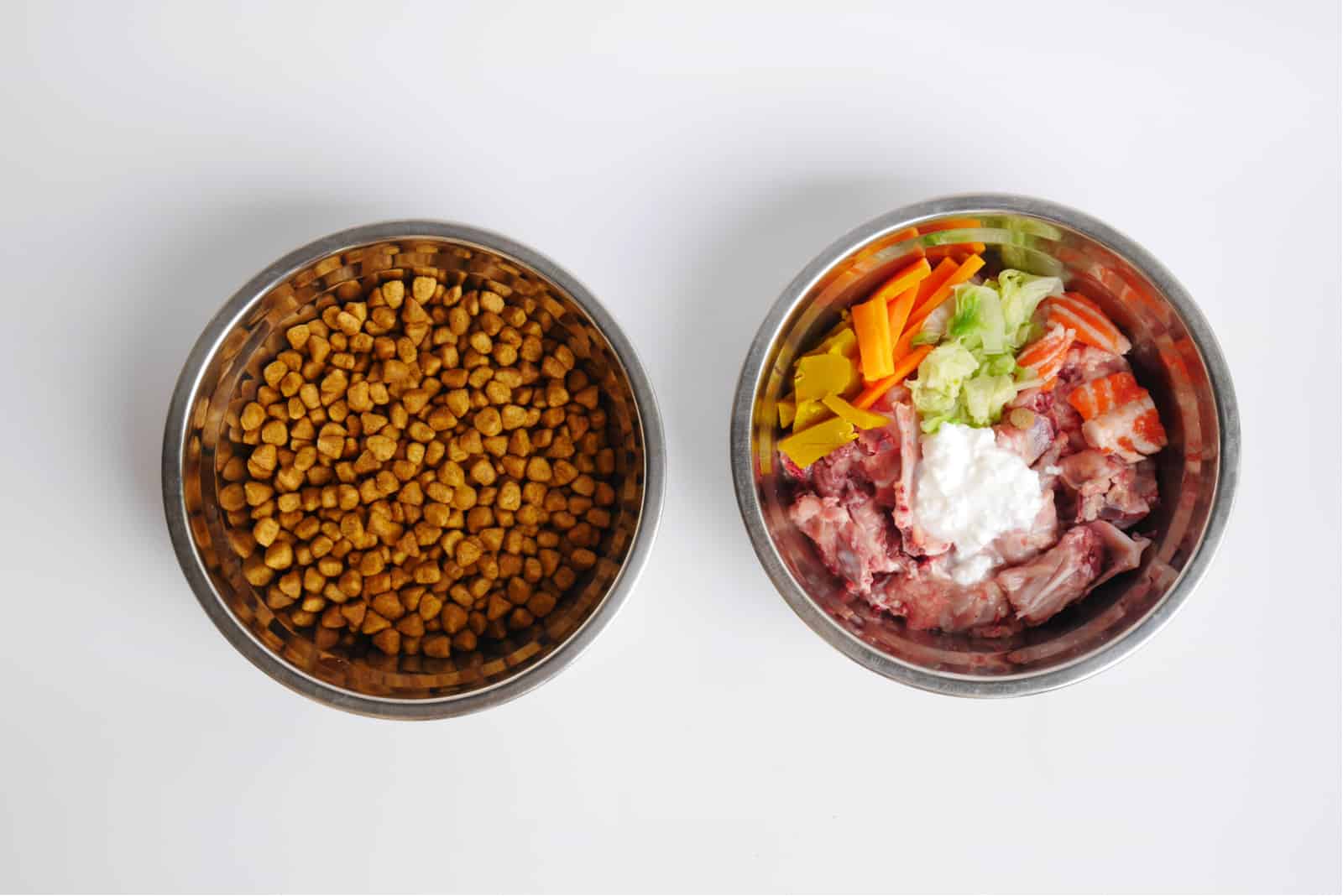
When your cat’s feeding schedule changes, if he misses a meal or eats at a different time than usual, he may spew undigested food. Additionally, you may have altered your cat’s diet too rapidly.
It is advised that you transition your cat to a new diet gradually over a one to two-week period, gradually reducing the amount of the old cat food while increasing the new cat food. Your cat may eat too fast, causing undigested food to regurgitate.
Vomiting due to overeating is less prevalent in cats, although giving your cat lighter and more regular meals may help.
You should also consult your vet about the portion of food you give to your cat to ensure that they are not overfed and are getting the nourishment they require.
5. Intestinal Blockage
This problem relates to more severe cases in which the intestines are clogged by something, generally as a result of the cat swallowing a foreign object.
When you live with a cat, you must be extremely cautious about where you place little objects that might easily damage your feline buddy.
Rubber bands, hair bands, thread, a variety of ornaments, particularly Christmas ornaments, and similar items fall under this category.
Cats are naturally curious, so if they come across an unusual thing, they will examine it and play with it before accidentally consuming it.
This produces a range of problems, including intestinal obstructions, which are quite unpleasant for cats. It makes them uncomfortable and may frequently be the cause of behavioral changes.
6. Pancreatitis
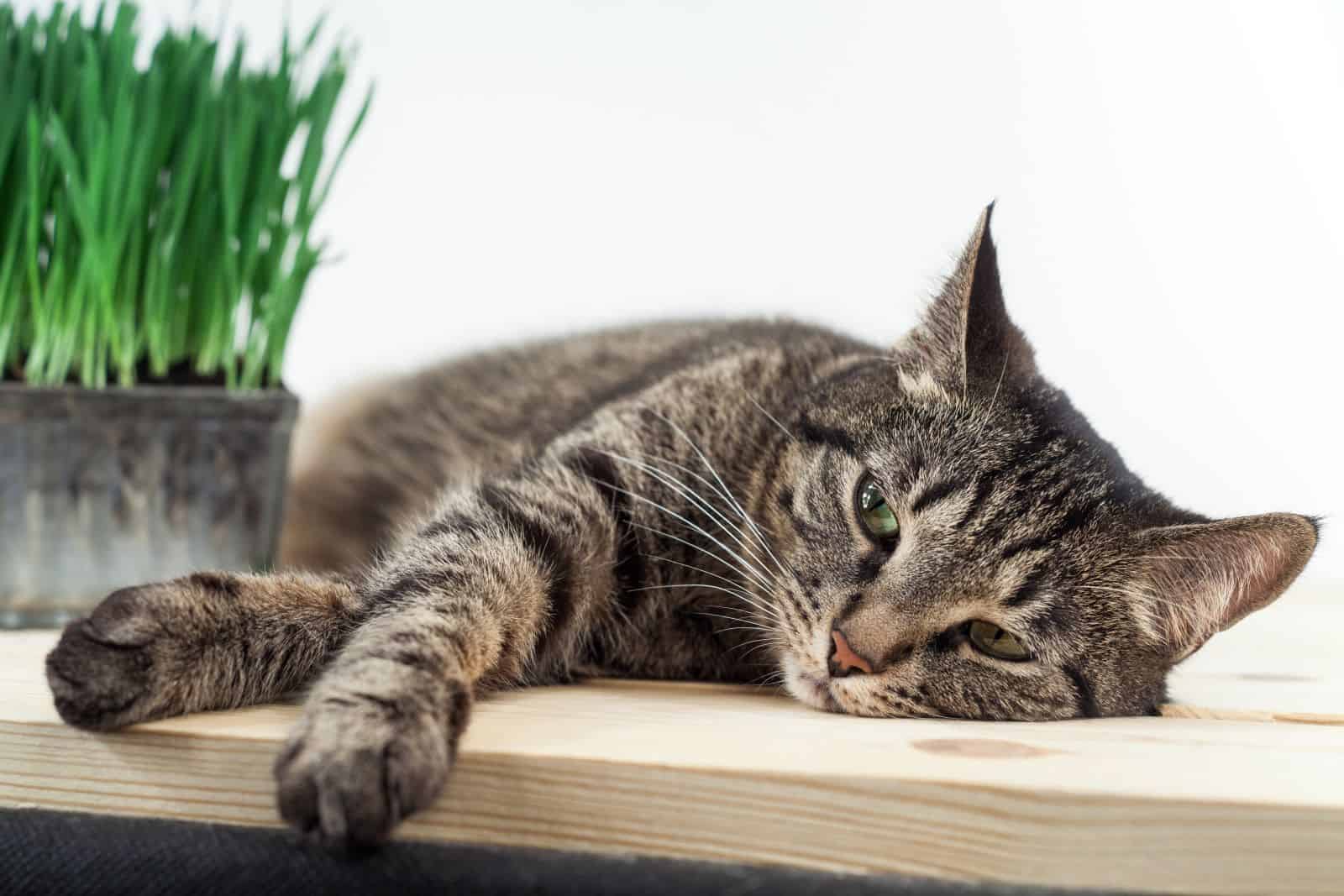
Pancreatitis is the painful inflammation of the pancreas. The exact reason for pancreatitis in cats remains unknown, and the symptoms (like vomiting and diarrhea) are similar to those of other digestive issues.
Pancreatitis can be fatal, so it’s critical to bring these symptoms to the attention of your vet. Your cat needs treatment as soon as possible, so it’s critical to take it to the vet for a specific diagnosis.
See also: My Cat Is So Skinny I Can Feel Her Bones – What Should I Do?
7. Gastritis
If your cat has a habit of getting into things it shouldn’t, it might have harmed its stomach by ingesting something. As a result, your cat may vomit undigested food, and sometimes blood.
In this instance, it’s conceivable that your cat will develop additional symptoms. These symptoms might include lethargy, depression, dehydration, or a reduction in appetite. You should obviously visit your veterinarian about this scenario.
Your cat may also be showing signs of a loss of appetite, depression, lethargy, or dehydration. If your cat is vomiting due to gastritis, your veterinarian will know how to help. Other symptoms may include:
• Gastrointestinal irritation
• Motility issues
• Constipation
• Intestinal parasites
• Blockage
• Foreign body stuck in cat’s digestive tract
• Toxins (possibly from chewing on toxic and unsafe plants)
8. IBD
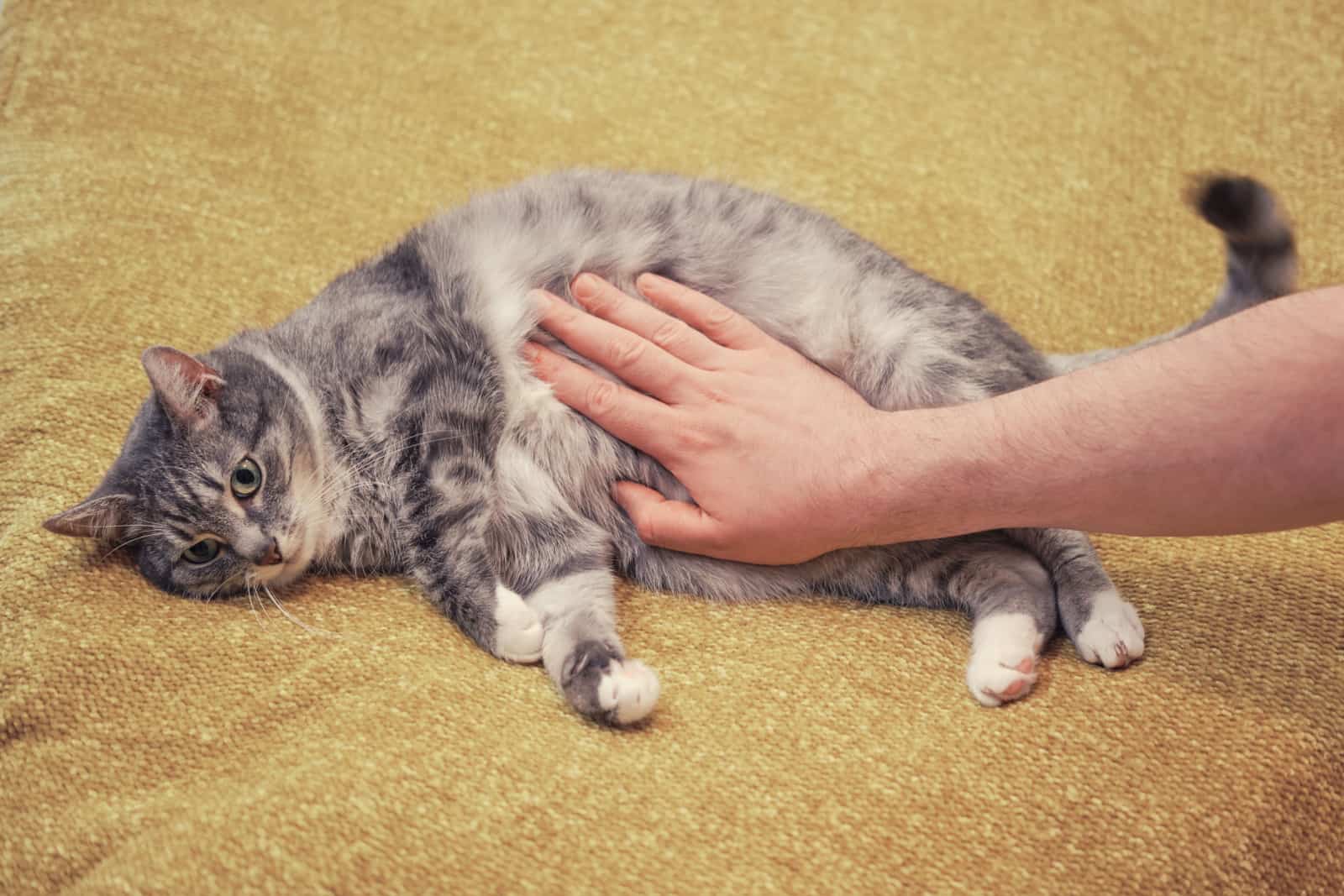
Chronic inflammatory bowel disease has been linked to lymphosarcoma, a kind of intestinal cancer. Vomiting and diarrhea can also be caused by bacterial overgrowth in the stomach.
Inflammation of the intestines can occur as a result of swallowing a specific drug, or a common allergy, damage to a specific part of the body, and so on.
The IBD illness may also manifest as a sign of other, more serious medical problems. When a cat has IBD, its gastrointestinal system cannot function correctly owing to inflammation and thickening of the lining.
This extends the time it takes for fecal matter to form. As a result, cats may have difficulty absorbing key minerals crucial for their health, leading to a variety of gastrointestinal disorders.
9. Intestinal Parasites
Hookworms and roundworms are two major causes of vomiting and diarrhea in cats. Cats with worms may also appear to be potbellied. Cats suffering from panleukopenia, feline leukemia, or other viruses may vomit as well.
Intestinal parasites are one of the most prevalent causes of intestinal bleeding in cats, particularly in outdoor cats.
Your cat may stroll through cat litter or water that has come into contact with diseased excrement, and that’s the end of it. If you have numerous cats and they share a litter box, having just one infested with parasites is enough to infect them all.
Kittens are also at a higher risk of intestinal parasite infection since hookworms can be contracted through their mother’s milk.
10. Stress
And, of course, there’s stress. Stress in felines is a problem that occurs more and more. Whether your cat isn’t pooping or it has trouble peeing, stress can be the main culprit.
Moving, unfamiliar guests, changes in lifestyle or your cat’s routine, switching to a new food, and bringing in new pets can all induce stress in cats, which can, among other things, lead to throwing up undigested food.
How To Help If Your Cat Vomits Undigested Food
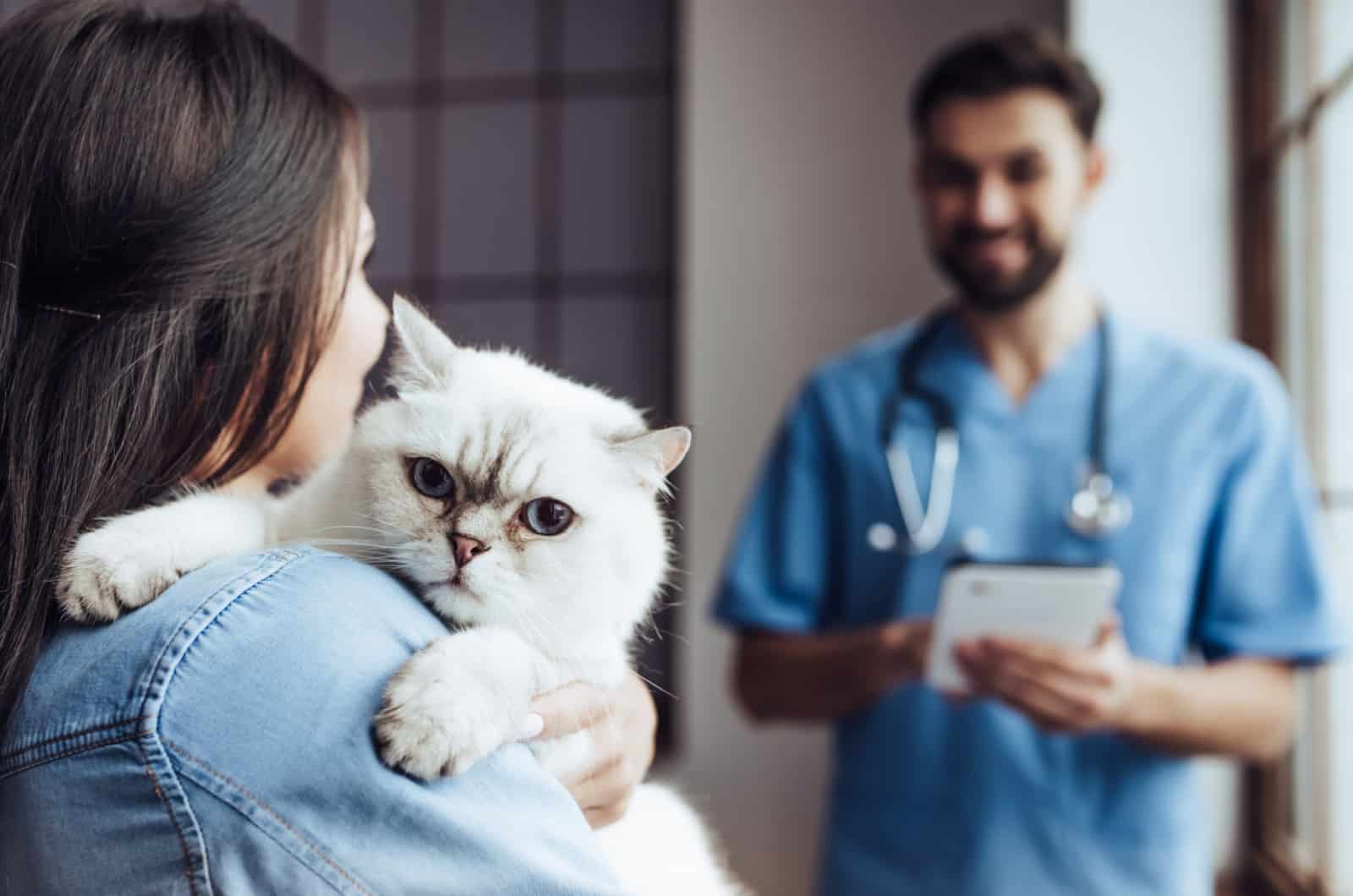
Your veterinarian will perform a thorough physical examination, talk with you about your cat’s symptoms, and most likely order certain tests.
These tests may include bloodwork, urinalysis, parasite checks, and imaging procedures such as abdominal ultrasonography or radiography (x-rays). Bringing in a sample of your cat’s vomit or a stool sample to the appointment would be of great help.
Furthermore, note the brand and type of food you feed your cat, as well as how much and how quickly your cat consumes. All of this information will help your vet make the diagnosis.
Treatment options will vary depending on the cause of your cat throwing up undigested food. The treatment can include the following:
• anti-nausea medication
• detoxification (in case of ingested toxic substances)
• surgery (in case of severe blockage)
• change in your cat’s diet plan
In many cases we come across, regardless of whether it is mild or acute vomiting, a diet change and some meds to stop nausea are enough for your cat to be back to its old self. Your cat will most likely recover within a few days.
Cat owners frequently inquire whether there are any at-home treatments or home remedies that can cure this. There is no home remedy, but there are things you can do to prevent or help your cat if it is throwing up undigested food.
Note: Never give cats medication made for people unless your vet advises you to.
What You Can Do To Help
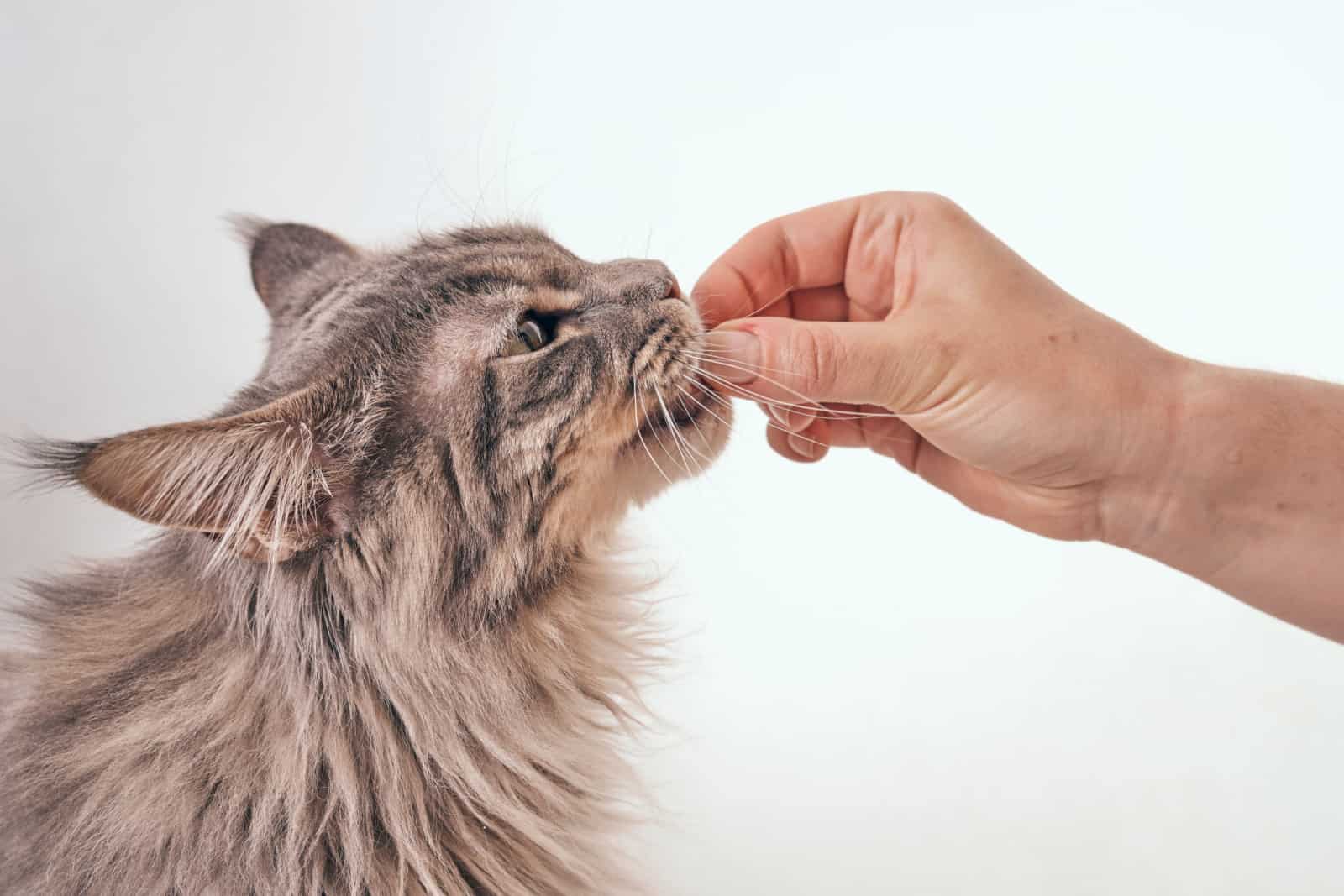
Always take your cat to the vet for a full exam and diagnosis. Then afterwards, you’ll be required to modify your cat’s daily routine and do your best for a fast recovery.
Diet Change
As I’ve said several times throughout this article, the type of food you give to your cat is sometimes the main problem for your cat’s eating habits and issues associated with it.
Switching to a different type of food is usually a great idea, and it helps in most cases of cat vomiting. However, don’t make any changes or decisions without talking to your vet first.
Check out: Best Cat Food For Older Cats That Vomit: Top 18 Choices
Hydration
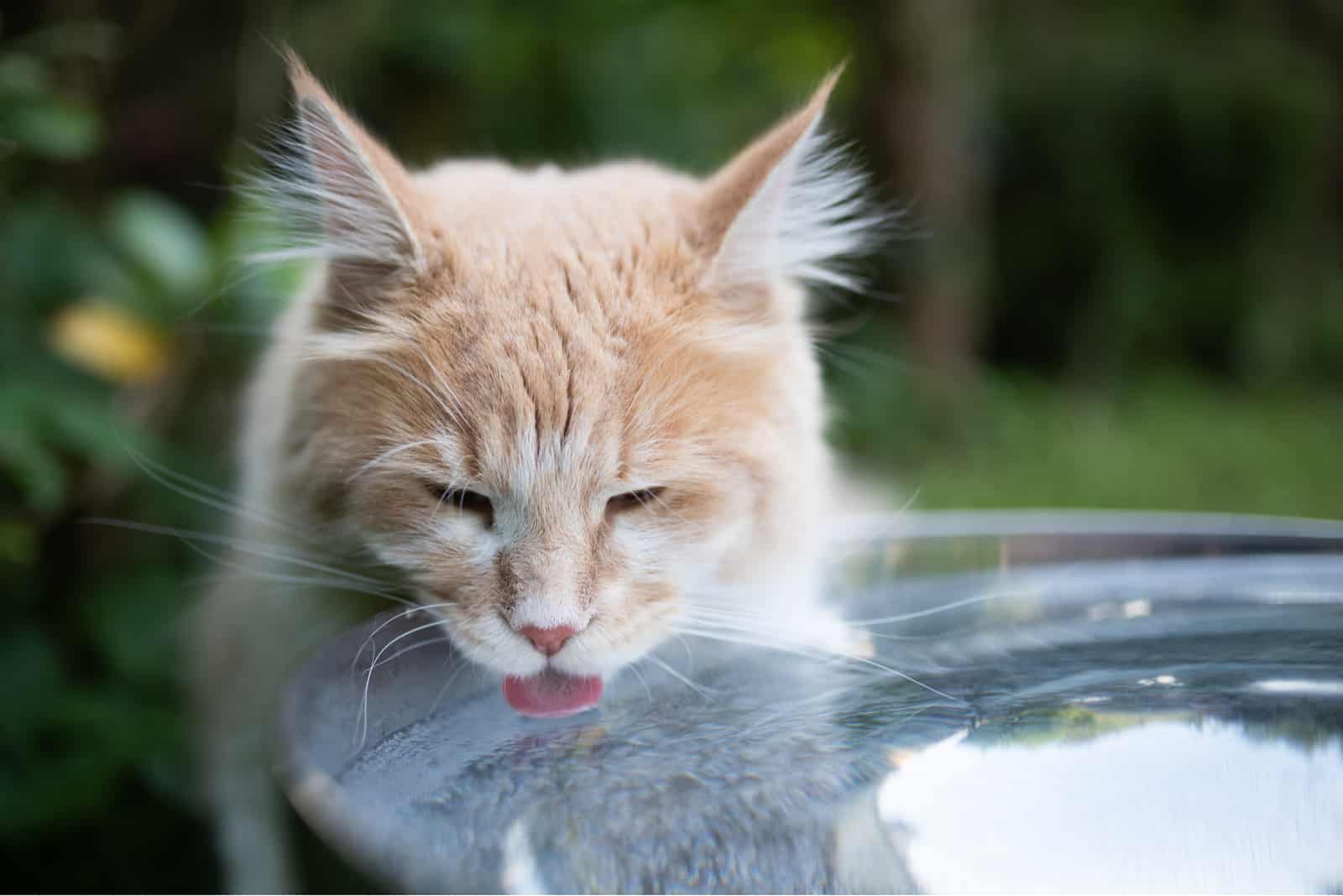
If your vet finds no serious signs following the check-up, they may give your cat some water to help clean and detox its body. Furthermore, because your cat vomited a lot, this will be extremely helpful in its hydration.
In fact, administering fluids is usually the most helpful treatment, and it’s usually performed for all cats that vomit excessively, regardless of the cause.
Hydration can only do them good. Because cats lose a lot of water when they throw up, they can easily get dehydrated, which will only prolong their sickness and lethargy.
Medication
If your cat’s vomiting symptoms are very severe, the doctor may prescribe some medicine to stop it right away.
These medications also alleviate the cat’s pain and encourage it to consume more food. If the vet believes it is essential, pain medications will also be administered.
Prevention
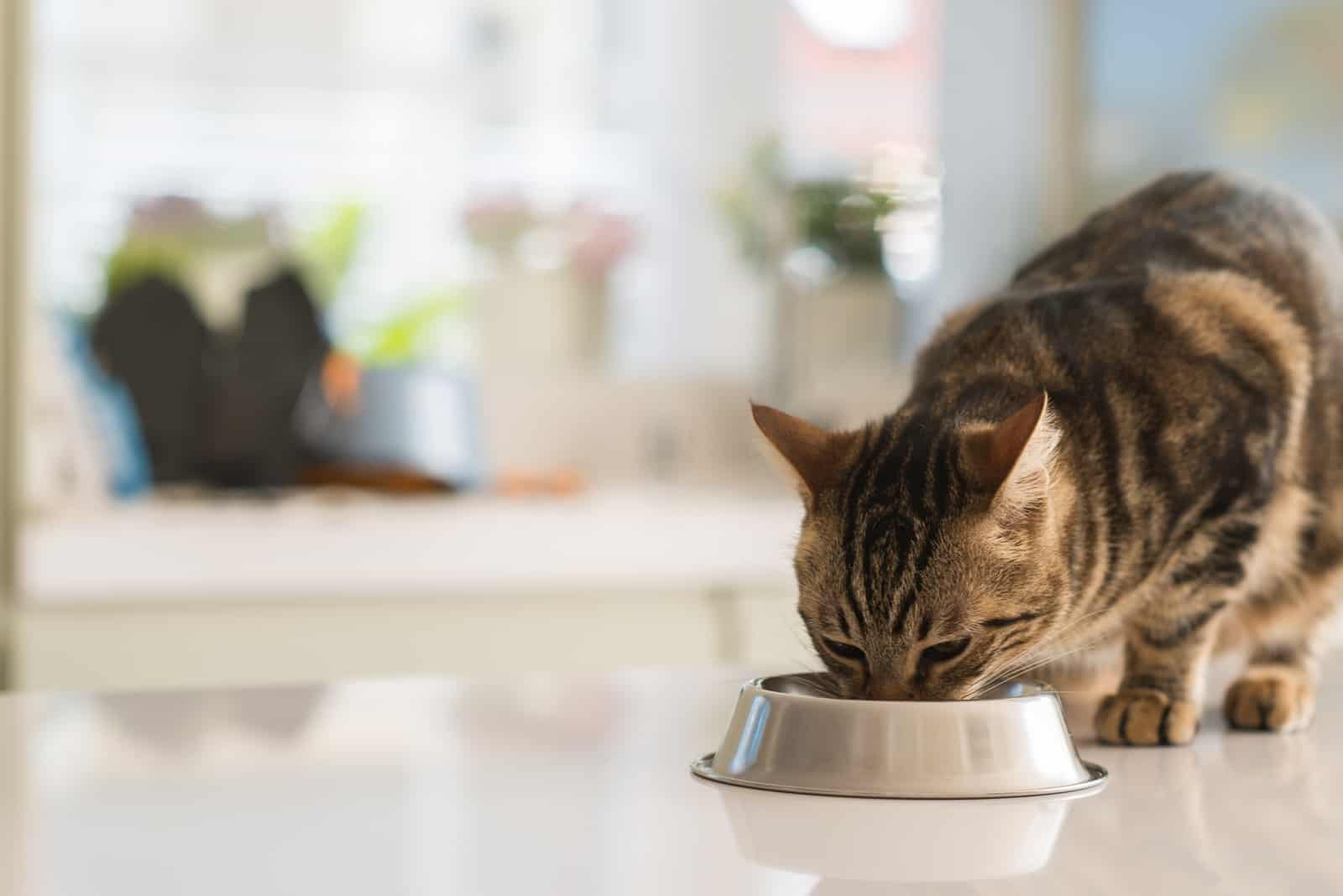
Maybe your cat vomited once, and you wanted to find out why is my cat throwing up undigested food. However, if you’re concerned, or if this is a recurring issue or results in chronic vomiting, read on and see how to prevent it from happening.
Use a food puzzle to slow your cat’s eating. Consider a slow feeder or an automated feeder that feeds pre-measured portions at different times of the day if your cat devours its food quickly.
You may also give your cat numerous smaller meals during the day or put the food out on a flat surface. Change your cat’s food. Consider switching your cat’s food to one designed for sensitive stomachs.
If your cat throws up hair with food, comb her more frequently to remove the hair and try switching to a type of food made for hairball prone cats. Reduce the amount of stress in your cat’s environment.
Keep your cat comfortable at home by providing lots of litter boxes, water dishes, and food, as well as lots of good climbing and scratching options. Schedule regular vet check-ups.
Consult your veterinarian at least once a year, and more frequently if you have worries about your cat’s behavior.
Closing Thoughts
Suppose you find your cat throwing up undigested food multiple times and/or in connection with other clinical signs like appetite loss, weight loss, lethargy, or diarrhea. In that case, you should contact your veterinarian immediately.
Our cat’s health and wellness are of utmost importance. We all want what’s best for our pets, but sometimes things we can’t influence happen. You asked why is my cat throwing up undigested food, and I hope my answers help with your further investigations.
Depending on the findings of your vet, your cat may end up in the hospital for fluid therapy and supportive therapy, or they may only require oral meds to take at home.
If your veterinarian believes that your cat has an intestinal obstruction, surgery might be necessary.

